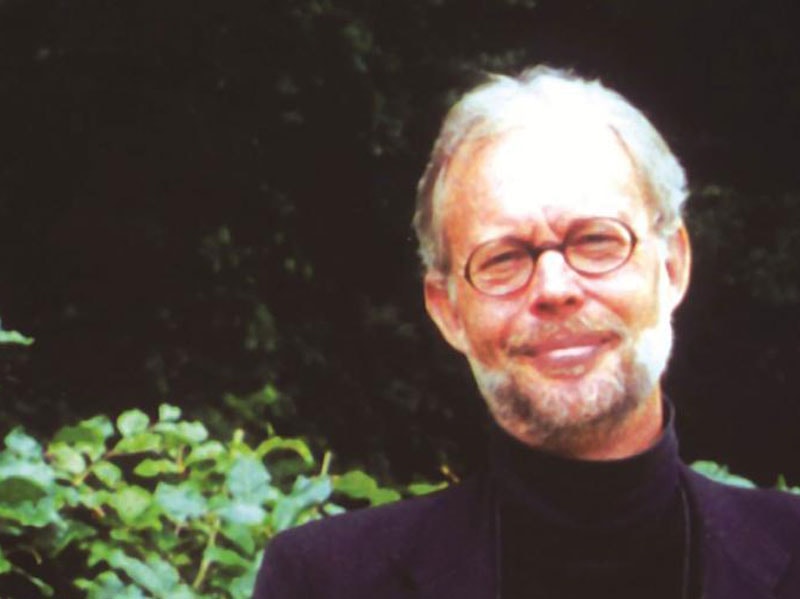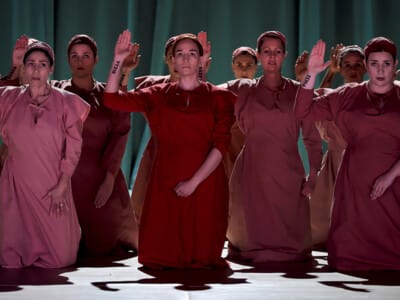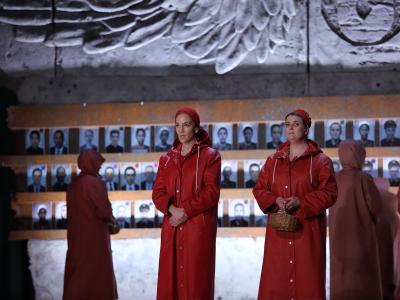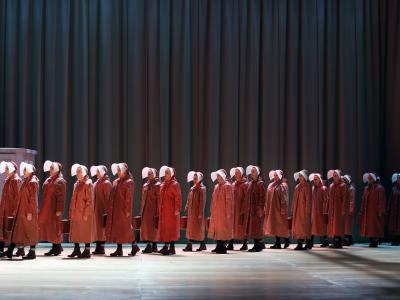An Introduction to The Handmaid’s Tale
Margaret Atwood’s seminal modern fiction work The Handmaid’s Tale rocked the literary world upon release in 1985, depicting an America overturned by a totalitarian theocratic state. By 2000, Danish composer Poul Ruders had turned the novel into an operatic depiction that kept audiences on the edge of their seat. If you’re a fan of the book or TV series, or like a dystopian twist in your fiction, we think you’ll love The Handmaid’s Tale.
A take on Atwood’s modern classic
Video
Written in 2000 by Danish composer Poul Ruders alongside librettist Paul Bentley and based on Margaret Atwood’s modern classic of the same name, The Handmaid’s Tale opera premiered in Copenhagen in March 2000. The first English language production premiered with ENO in April 2003 at the London Coliseum, and since then it has been performed around the world, most recently in Boston in 2019.
The story of Atwood’s novel has entered the cultural zeitgeist of recent times, with the award-winning TV show airing since 2017, and a sequel novel The Testaments being published by Atwood in 2019.
Welcome to Gilead

Following the assassination of the President of the United States by fundamentalist Christians, the Republic of Gilead is formed. In this patriarchal dictatorship, the women are little more than trophies, even though this is the first generation living in this new world. When the wife of an important government official cannot bear children, they send for a Handmaid: a woman to act as a proxy and ritually bear the child for his wife. Handmaids are stripped of their individual identity by indoctrination and viewed as property.
We follow the story of the newly allocated Handmaid named Offred (of-Fred, the patriarch and master of this new household), and what little freedoms she can fight for in this new regime − and the consequences that may follow.
A major ENO Directorial debut
Video
Directed by ENO's Artistic Director
Our 2022 production was the first opera directed by ENO’s Artistic Director Annilese Miskimmon after she joined in 2020.
Known for her commitment to modern works, this new production won’t be The Handmaid’s Tale you’ve seen depicted in the television series, but is rather something wholly new visually. Annilese’s work around the world has received critical acclaim – she’s been nominated for, and won, awards including the International Opera Award, Royal Philharmonic Society, UK Theatre Award, South Bank Arts Award, Guardian Theatre, Irish Times, Manchester Evening News Theatre and Aarhus Stiften award.
Ruders’s riotous score

With clear Berg and minimalism influences, the dissonant brutality of Gilead is viscerally depicted in the music itself, wildly changing pace from the disconcerting chanting of the Handmaids to a moving love duet.
Ruders has been quoted as saying he ‘heard long, sustained towering chords slowly becoming louder and louder’ as he read Atwood’s novel – a sense of unease he has depicted in the opera magnificently.



